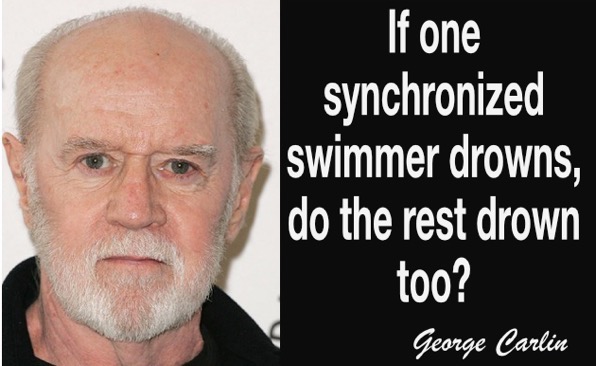 A friend once asked, “What is the dumbest question anyone has asked you?” I didn’t have an answer then and still don’t. Though done in jest, my response of “That one?” wasn’t taken well.
A friend once asked, “What is the dumbest question anyone has asked you?” I didn’t have an answer then and still don’t. Though done in jest, my response of “That one?” wasn’t taken well.
Like many, I have been programmed with the mantra that there are no stupid questions. I believe that. Every question has a potential to strip a way a little varnish of ignorance that runs deep in ourselves. That doesn’t mean every question uttered was a wise one, though.
Irrational curiosity is the only immutable requirement I have for members of my team. Surrounded by that amount of curiosity will get you a ton of questions. Questions can tell a lot about a person. They provide some of the deepest insights into one’s current knowledge and reasoning processes. In other words, they can expose your ignorance. This is why we are often afraid to ask questions. Ignorance is a temporary state which is often best ended by asking questions. Unfortunately, this requires you to come clean about what you don’t know.
There was a time at a previous company when a lot of new executives were coming on board. I noticed that when a new leader came in, it was a surprisingly short period of time before my coworkers had developed a strong opinion on the new exec’s abilities. While I thought that was a poor decisioning process, I was surprised how spot-on many of their early assessments would prove out.
Intrigued by their early predictive abilities I wanted to understand how they came to their opinion. Over and again I heard, “the questions they asked”.

When you think about it, this makes perfect sense. When a new leader comes in, they often don’t have the information that allows them to speak authoritatively on topics of common interest. Strong leaders typically spend 75% of their first few weeks asking questions. It also exposes their willingness to be vulnerable. They were being judged on the quantity of their questions. To be more precise, they were looking at the ratio of questions to imperative commands.
Great leaders know the power of questions. They know they need to ask a lot of questions. But in those first few months of a new job they are even more critical than ever.
They need to make sure that the quantity of questions is sufficient to have others believe they are equipped to make meanignful commands.
But what if they are the wrong questions? Doesn’t quality matter?
When I concentrated on what kinds of question they were asking, they seemed to fall into one of four categories:
- Base Understanding – These are the questions that help them understand the products, the organization and how things work. This is expected coming into a new job. Everyone is given a free pass to be completely ignorant on this topic and can ask pretty much whatever they want without judgement.
- Culture – They need to understand all of the ways that people interact and behave that can’t be written in an employee handbook. What are the norms for communication? Is there a strong hierarchy that must be obeyed? Again, pretty much a free pass to ask whatever questions that help clarify.
- People – This is different from culture. The newbies have a lot to learn about who people are, what they do, and how they relate to their job. However, there is an expectation that a leader demonstrate they understand the fundamentals of interpersonal relationships. A good deal of your initial judgement will come from the way you demonstrate your knowledge of personal and corporate relationships.
- Insight – This is the big one. Insight is how you take new information, combine it with your previous knowledge and develop a way of looking at things that is accurate and possibly novel. This is where I believe the vast majority of early opinions are formed.
 Insight as described above would seem to be a statement and not a question. True, but insight comes through a series of progressive questions that often start with questions and learnings from the other three categories. Each progressive question leading to the insight demonstrates their thought process. The combination of base understanding, culture, and people questions builds the foundation for learning what to ask, when, and most importantly, how.
Insight as described above would seem to be a statement and not a question. True, but insight comes through a series of progressive questions that often start with questions and learnings from the other three categories. Each progressive question leading to the insight demonstrates their thought process. The combination of base understanding, culture, and people questions builds the foundation for learning what to ask, when, and most importantly, how.
You can tell when someone is asking an insightful question by your reaction. “I hadn’t thought of that,” or internally asking yourself, “how did they know to ask that after only being here a couple of weeks?” When we see leaders asking insightful questions, we tend to give them the benefit of the doubt when they seem to do things that we don’t understand. In other words, we give them a freer rein to lead.
I had a college teacher tell me he could tell far more about how capable a student was not by his answers, but by his questions. So is it with leaders. Much like my college professor, my friends were listening to the insightfulness of questions to make an early assessment of the leader.
So leaders, be aware that although people may say there is no stupid question, you will still be judged on the questions you ask. But, you will be judged far more harshly if you don’t ask enough questions. Get your base understanding, people and cultural questions in early so that you can quickly get to your insightful questions.






